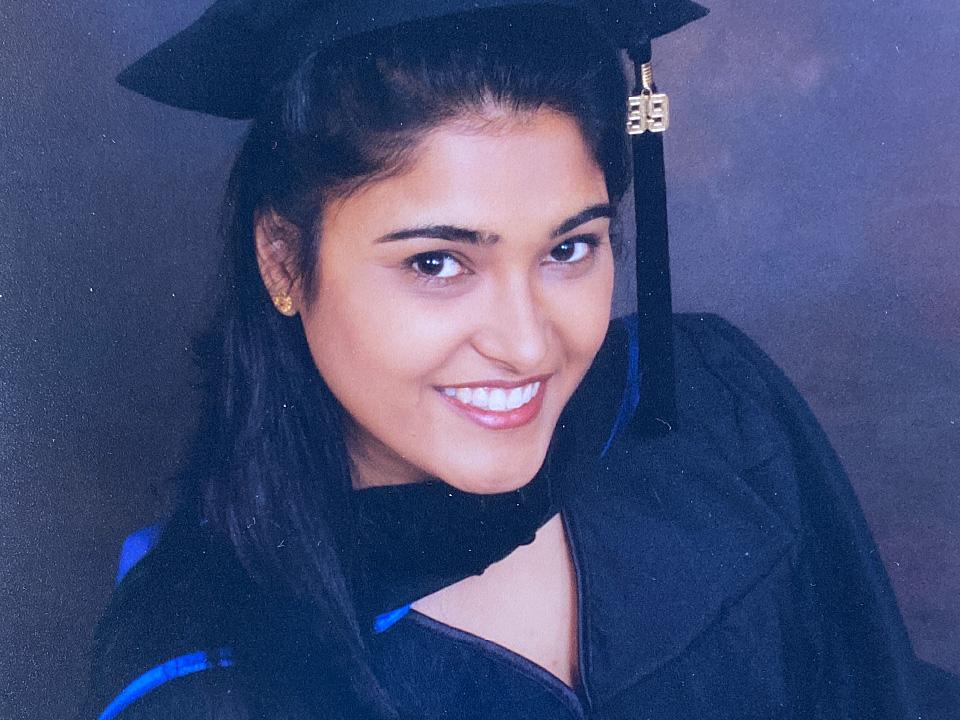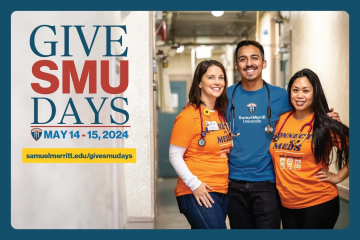Alumna Helps OT Students Pay for National Board Exam

Shefali Parikh, MOT ’99, still recalls commiserating with classmates after their occupational therapy licensing exam 23 years ago. What worried her classmates most were the hundreds of dollars it cost. It had been hard for some to cover the expense, and they worried about having to pay again if they didn’t to pass on the first attempt.
Last year, Alondra Ammon, MOT ’17, adjunct instructor of occupational therapy and Chi-Kwan Shea, associate professor of occupational therapy—both members of the Black, Indigenous, and People of Color (BIPOC) alumni group—decided to start the NBCOT (National Board for Certification in Occupational Therapy) Examination Relief Fund to help students pay for the $515 exam. They expected to be able to pay the registration fees for a few of the 30 or so students who usually take the exam. Then Shefali, recalling her cohort’s experience, stepped up. Thanks to her generous donation, all Samuel Merritt occupational therapy students taking the exam in 2022 will receive $400 to offset the cost.
“I've gotten to a time in my life when it's time to start giving back more, I’m very fortunate,” says Shefali. “Fancy cars and clothes and all that don't really mean a whole lot to me. But knowing that I’ve helped someone’s day-to-day life, that matters a lot to me. It's a small thing to do, to cover their exam fees, but it can make the difference in alleviating some of the anxiety around the test.”
Lisa Lam, OTD ’21, who took and passed the NBCOT in January, felt a lot of pressure leading up to the exam until she learned about the financial support coming her way from the Relief Fund. “Since I had less financial stress, I was able to focus more on test time management and the various topics I needed to improve on,” she says. “SMU offered many resources to support my education, and this is one I’m especially grateful for.”
Shefali knows how much effort and time it takes to apply for financial support, so it was important to her to minimize the red tape involved. “I wanted the students to just receive a gift without having to do extra paperwork or put any extra energy into it. I wanted them to focus on getting to the finish line,” she explains.
“When I was a student, we didn’t know how much the board exams would cost, and it wasn’t on our radar. By the time we took the exam after graduating, we didn’t have student financing anymore and there was no funding for it,” says Ammon. “With this fund, we wanted all students to have equal opportunities when it comes to taking the boards.”


